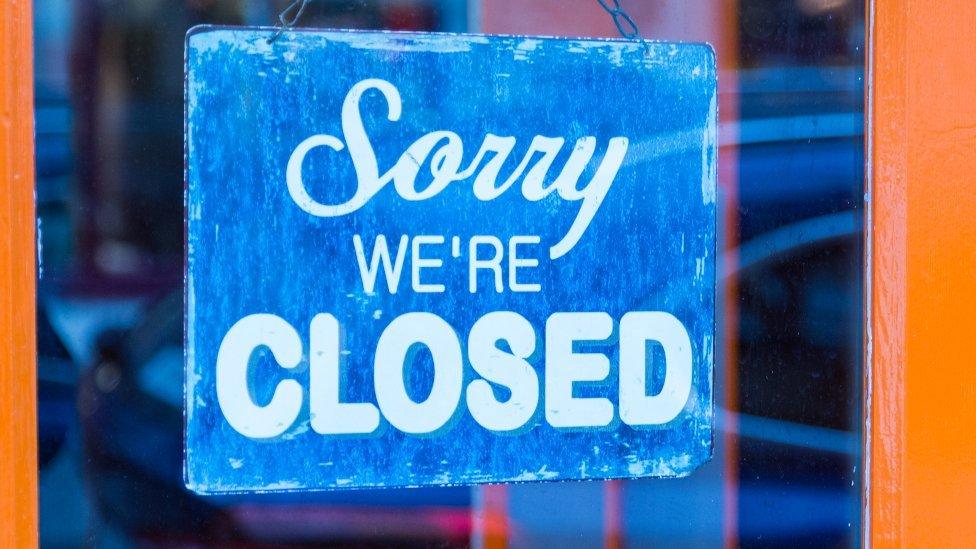'Furlough mums and dads while schools are off' says TUC
- Published
- comments
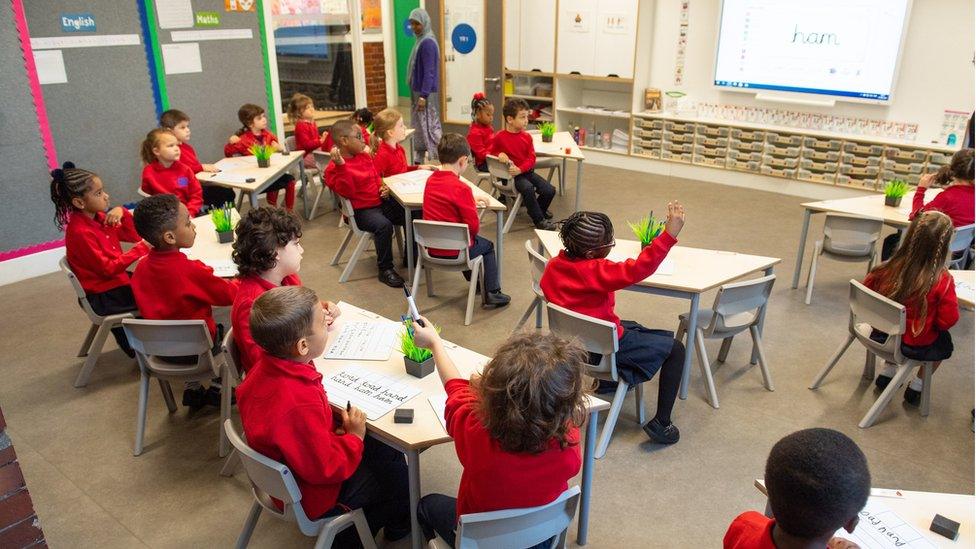
Working parents trying to balance work and childcare should be put on furlough while schools are closed, the umbrella body for UK trades unions says.
Bosses may not be aware that they can use the scheme to support parents, according to the Trades Union Congress.
Many families would be "frantically" looking for a solution, the TUC said, after the decision to start the new term late or online for many pupils.
Employers must "do the right thing and furlough mums and dads", the TUC said.
All secondary schools will remain closed to students this week, except for the children of key workers such as NHS staff. Students are expected to return on a staggered basis from 11 January.
Most primary schools are open to pupils from Monday, except in London and parts of the south east of England where the spread of a new, more infectious, strain of coronavirus is already high.
However, decisions over whether it was safe for pupils to return to school in person were still being discussed over the New Year holiday weekend, leaving parents with little time to find support.
"Without further action, many will have no choice but to cut their hours or take unpaid leave from work," said Frances Grady, general secretary of the TUC. "This will lead to further hardship and will hit mums and single parents hardest."
According to the rules of the Coronavirus Job Retention Scheme, first introduced nine months ago, firms can furlough parents unable to work due to a lack of childcare.
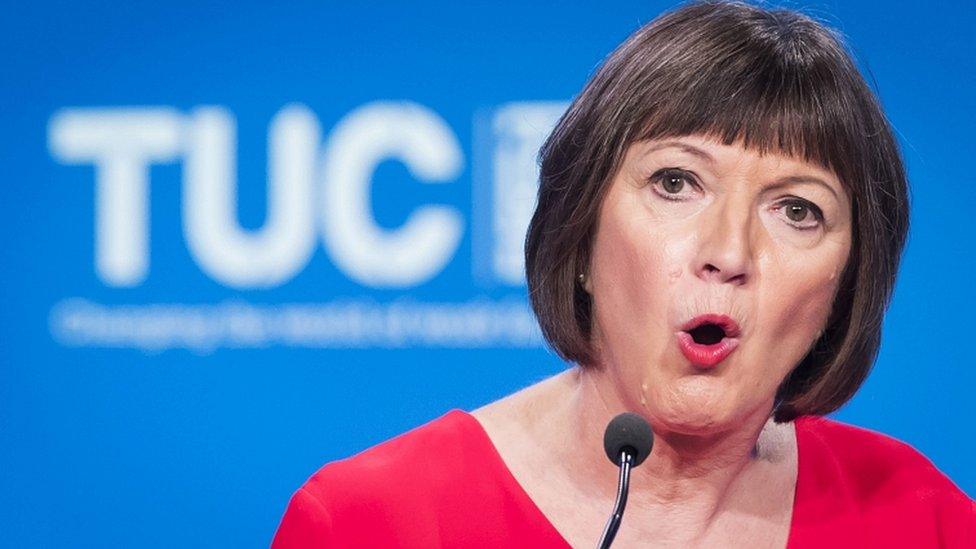
The TUC 's Frances O'Grady is also calling for permanent changes to employees rights
The TUC said its research showed that in March, when schools were closed during the first period of lockdown, one in six mothers reduced their working hours due to school and nursery closures. It said single parents were also more likely to be affected.
Self-employed parents should also be given support through access to the self-employed income support scheme, the TUC said. It is calling for employees to be given a right to paid parental leave and flexible working beyond the current crisis.

What are your options?
Employers aren't obliged to furlough staff, says employment lawyer Sarah Chilton."You might think, why wouldn't they? But there are some costs associated with it," she said.
Firms in sectors that have lost business due to the virus are more likely to agree than those that have plenty of work for staff to do.
If you aren't furloughed, there are alternatives:
Ask for flexible working. Employees (but not freelancers or gig economy workers) have the right to request flexible working, although your employer can still say no
Take emergency time off. Everyone has a right to this, whether its is to care for a child or another dependent, such as an elderly relative. But it is only for short periods, for problems you couldn't foresee, and is unpaid
If you've been with your employer for more than a year you can claim statutory parental leave up to 18 weeks for each child, but you have to discuss the timing with your employer. Firms usually require several weeks' notice and the leave is also unpaid
You can ask for unpaid leave. If business is slow your employer may be ready to agree a temporary absence.
You can use your annual leave, as long as your employer doesn't require more notice.
However, most firms will have their own policies in place in addition to those laid out in law, said Ms Chilton, so it is sensible first to check with your boss.

One of the arguments for keeping schools open, rather than switching to remote learning, is to allow parents to continue to work.
However, there is a growing debate over whether the new coronavirus strain, which is significantly more infectious than the original strain of the virus, can be contained without closing schools for longer.
While cases of the virus are increasing in almost all age groups, the percentage testing positive is highest among secondary school age children, according to the Office for National Statistics. While schools practice social distancing where possible, students continue to mix with others within their bubbles.
"The health and safety of school staff, children and parents and the wider community must come first," said Ms O'Grady.
Social responsibility
Boris Johnson, interviewed on the BBC's Andrew Marr show on Sunday, said there was "no doubt in [his] mind that schools are safe". But the prime minister did not rule out further closures.
Teaching unions have told staff at primary schools it is unsafe to return to work and are calling for remote learning to be introduced across all primary schools. Some local authorities have also expressed concerns.
Mr Johnson said that while school closures would be kept "under constant review", the government would be "driven by public health considerations and by the massive importance of education".
A government spokesperson said it would be "socially responsible" for employers to take account of a person's childcare responsibilities and individual circumstances.
"We encourage both employers and employees to be as flexible as possible during this difficult time, to support colleagues with childcare responsibilities.
"That includes providing flexible working and home working arrangements, as well as considering requests from parents to be furloughed, which is at the employer's discretion," the spokesperson said.
Related topics
- Published30 September 2021
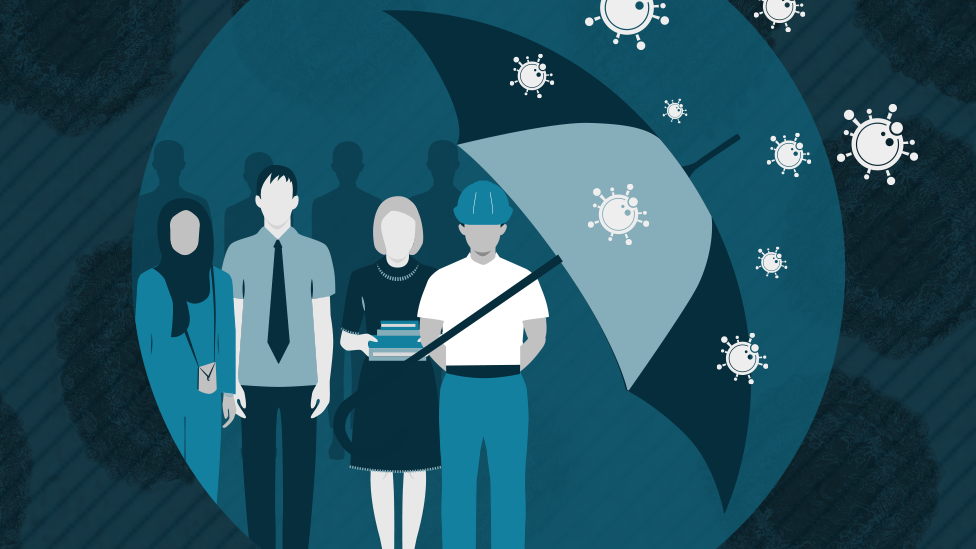
- Published3 January 2021
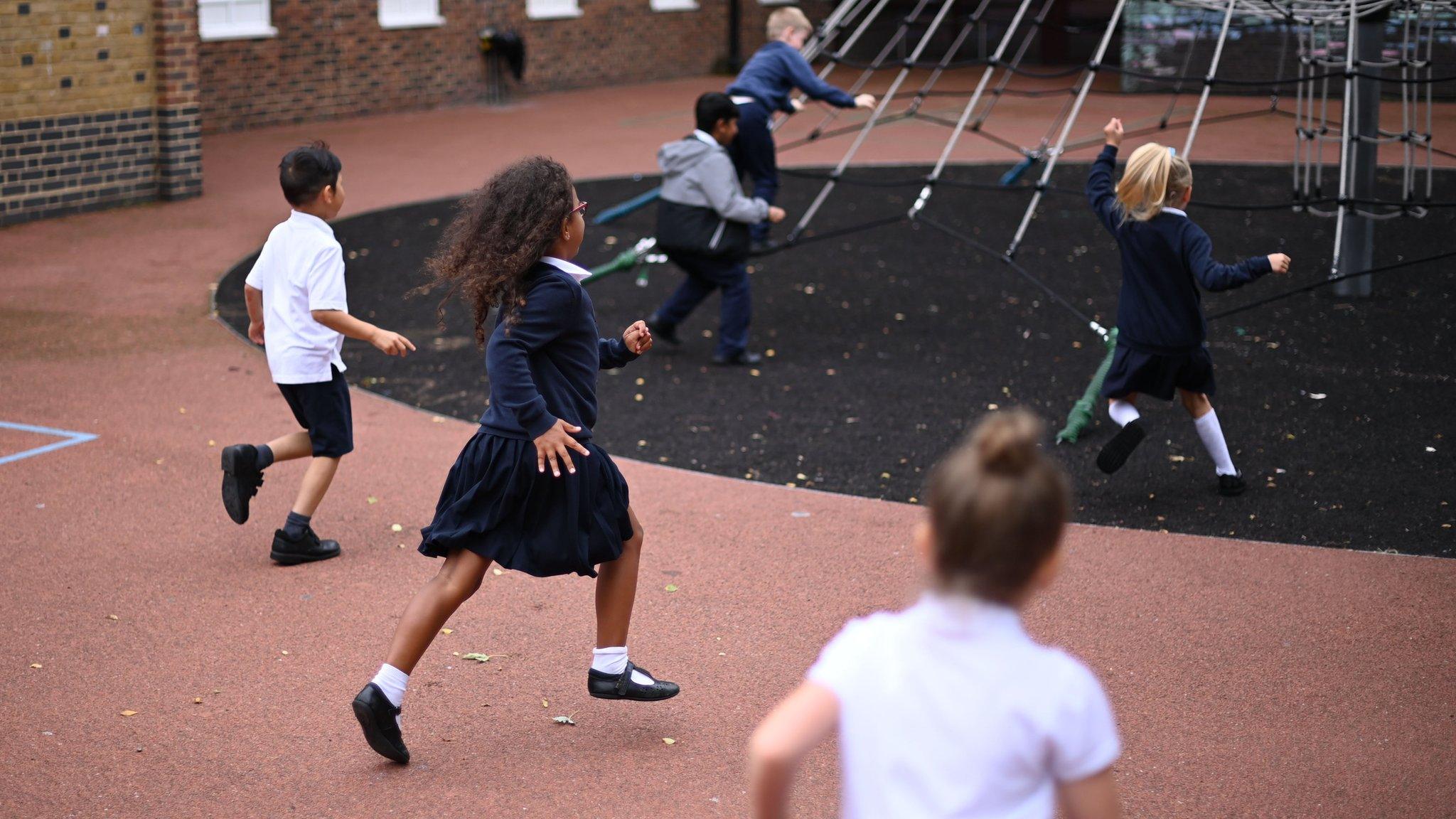
- Published17 December 2020
- Published2 January 2021
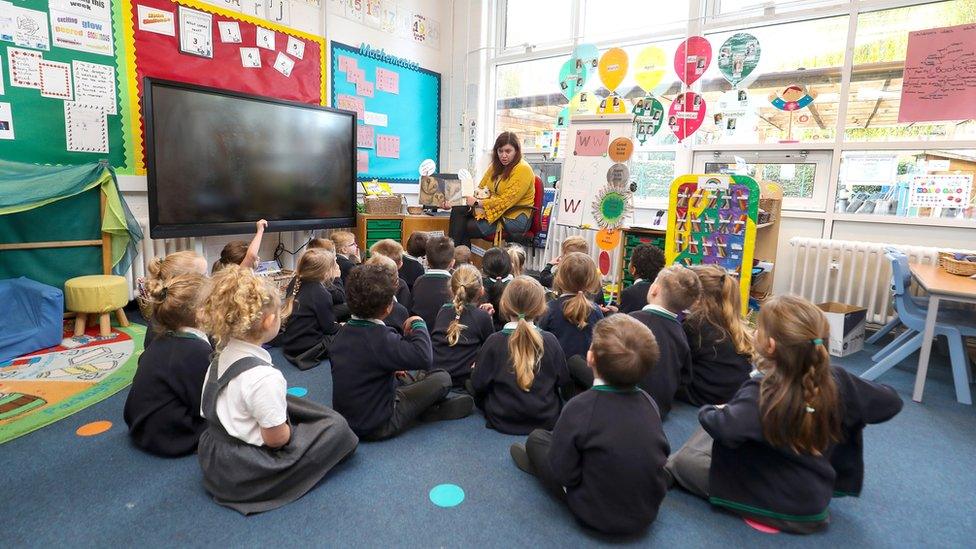
- Published23 December 2020
